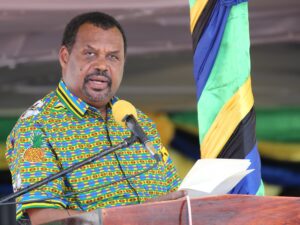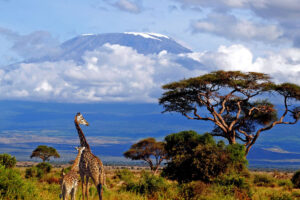
South Africans love a good controversy, especially if it involves beauty queens, nationality debates, and some heated social media drama.
So, it’s no surprise that Miss South Africa 2024 finalist Chidimma Adetshina set off a firestorm by daring to, well, exist.
Born in South Africa to a Nigerian dad and a Mozambican mom, Adetshina quickly found herself in the middle of what we’ll call “The Great Nationality Debate.” You could almost hear the collective sigh of “How dare she?” across the internet.
The second Adetshina made it into the pageant’s top 16, Twitter (or X, if we’re feeling fancy) lit up like it was New Year’s Eve.
Suddenly, everyone from your aunt to that guy who once won a pub quiz was a Miss SA expert, dissecting Adetshina’s entire heritage. Some claimed she wasn’t “South African enough,” while others asked, “Does she even know how to make pap?”
One user commented, “I’m all for diversity, but how does Nigeria + Mozambique = South Africa?” This is the same crowd who’d likely go, “Hey, I have a Nigerian cousin, I’m totally African!”
Meanwhile, fans jumped to defend her, with hashtags like #XenophobiaIsNotBeauty and #WeLoveChidimma. If pageants were scored by hashtag popularity alone, she’d already have her crown.
Amid the social media uproar, they announced they’d be investigating Adetshina’s citizenship. Cue dramatic gasp! According to sources, this “investigation” would clarify whether Adetshina is truly South African, or just—brace yourself—faking it.
In an unexpected twist, South Africans found themselves simultaneously rooting for and questioning Home Affairs. One tweet read, “The queue to get your ID takes 5 hours, but Miss SA causes them to move faster than an express train?”
Another user added, “Can they do this much investigating when my passport goes missing?” The response was a mix of indignation and admiration, which is pretty much the national vibe anyway.
What does it mean to be South African? For some, being South African means being born here. For others, it’s about identity and community.
Some critics insisted Miss SA was about “South African heritage,” which they defined with the precision of a toddler describing quantum physics. “She doesn’t embody the spirit of a true South African,” one person tweeted, probably while eating biltong with one hand and googling Adetshina’s bio with the other.
Others noted that she was, after all, raised in Soweto and is about as South African as anyone else—except maybe that she’s had to spend half her time explaining this to strangers online.
So where does this leave us? With a crownless Miss SA 2024, an endless supply of tweets, and the knowledge that if you so much as wear a sash in this country, someone somewhere will have an opinion on it.
As for Adetshina, she’s won the hearts of those who value inclusivity—and annoyed those who think a Miss South Africa finalist should come with an official heritage stamp.
In the end, this year’s Miss South Africa has given us all something to think about. If anything, it’s taught us that beauty pageants are no longer just about beauty.
They’re about citizenship, culture, and whether you can survive a social media storm while wearing heels.
Congratulations, Chidimma! You may or may not get the crown, but you’ve certainly got our attention.














